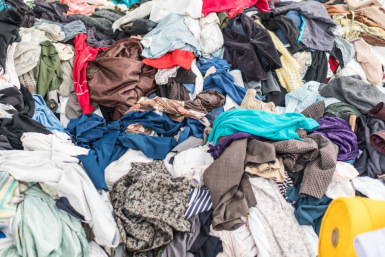Funding opportunity
This call invites proposals for feasibility studies for space-based solutions and services to enhance transparency, sustainability and resilience across the cotton value chain and wider textile industry. Solutions should address environmental costs of current agricultural practices, identify opportunities to improve livelihoods of farmers and support the creation or restoration of protected areas.
The challenge
The European Green Deal, the Circular Economy Action Plan and Industrial Strategy highlight textiles as a priority sector for advancing a carbon-neutral, circular economy. Textiles rank fourth in the high pressure category in the EU for consumption of primary raw materials and water (after food, housing and transport), and fifth for greenhouse gas emissions in the European Economic Area. Moreover, textile value chains are recognised as being long, globalised, and diverse.
While cotton crop itself is not overly water demanding, the combination of large production volumes and considerable use of pesticides/fertilisers have an enormous impact on ecosystems. With the sector expected to grow in the coming decade, it is important to mitigate the impact of cotton cultivation on ecosystems addressing global challenges such as climate change, water scarcity and biodiversity loss.
Topics of relevance
- Impact on water quality.
- Assessing environmental impacts of different cotton sustainability practices.
- Traceability issues.
- Monitoring ecosystem cumulative impact.
- Analysing Ecosystem Services.
- Identification of areas for ecosystem restoration or conservation.
- Sustainable textile supply chain.
Value of space
- Satellite Navigation (SatNav): GNSS enables geo-tagging services for data collected by IoT. For example, IoT sensors can measure air pollutants. SatNav can also be used to locate where the measurements are taken and pinpoint pollution sources.
- Satellite Earth Observation (SatEO): Provides geospatial, environmental, weather, mapping information for diverse applications enabling the evaluation of “what-if” scenarios and decision-making assessments. SatEO data monitor the natural environment, helping to understand where ecosystems have been lost through agricultural activity, and locations suitable for restoration of nature to meet under planetary boundary thresholds.
- Satellite Telecommunications (SatCom): Offers communication in remote locations without terrestrial networks and enhances network resilience and robustness.
Additionally, terrestrial technologies like Artificial Intelligence and Machine Learning technologies can analyse large datasets effectively, and their capabilities, where relevant for proposed applications, can be enhanced when integrated with space-based data.
What we offer
We offer funding and support to companies, both for business case assessment and for the development of new, space-based services.
Our offer includes:
- Technical & commercial guidance
- Access to our network and partners
- Use of the ESA brand for your service
- Zero-equity funding
ESA will co-fund 80% of the acceptable cost, up to €200K, per awarded study.
ESA tender information
Bidders shall submit their full proposals according to the procedure provided in ESA-STAR.
How to apply
- Register your team on esa-star Registration today. If your team is made up of more than one organisation, each entity will need to register.
- Download the official tender documents from esa-star when the opportunity opens. This includes a letter of invitation, proposal template, draft contract, and additional information about this opportunity.
- Prepare your proposal using the official tender documents and reach out to your National Delegation to obtain a Letter of Authorisation.
- Submit your proposal via esa-star Tendering by the deadline.
Authorisation of funding
This opportunity is open to companies that intend to develop space-enabled services and products related, but not restricted, to the topics of relevance outlined above.
To be eligible for funding, your team must be based in one of the following countries: Austria, Belgium, Czech Republic, Denmark, Estonia, Finland, France, Germany, Hungary, Ireland, Italy, Lithuania, Luxembourg, Norway, Netherlands, Poland, Portugal, Romania, Slovenia, Sweden, Switzerland and United Kingdom.
Authorisation of Funding letters from the corresponding National Delegations are required as part of the application.
Webinar
Date: 22 January 10:00 GMT/11:00 CET. (Click the button above to register).
Guest Speaker:
Jeffrey Thimm, Organic Production Specialist, Global Organic Textile Standard (GOTS).



